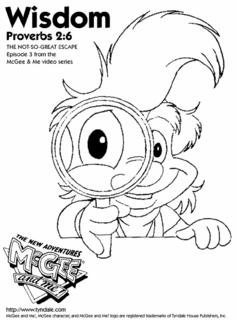
"
Conscience dictates” or "
The dictates of conscience". An impassioned plea usually heard to justify a rather unpopular stance, or when one is confronted with an option that resembles a Don Quixote-like quest. Or other such similar situations.
It does typically make one feel good, and more importantly, important and justified to declare that one is simply following one's conscience. For who after all in his right mind would publicly admit that he acts against his good conscience? It's a mantra accepted by most without much equivocation and hesitation. Sometimes, even without much forethought and afterthought.
I heard this again today and decided to give it a little afterthought, feeding it with what I have learned over time about conscience as a religious or spiritual concept.
Without delving much into the intricate facets that surround what conscience is, suffice it to say it is the inner voice in each one of us giving counsel as what is right and/or wrong in particular situations, or in our daily living of life. For those religiously inclined, it is that voice which is the logical and consequential manifestation of the principles of Eternal Law coming from the Supreme Creator, or higher being, if you wish. These principles are filtered under and assimilated into the natural laws that govern knowledge and reason. The instructed and informed will of man then acts accordingly based on these.
Given these august origins, it is easy for one to believe in it as some kind of monolithic, unchangeable, and universal source that will be one and all for each and every human being possessed of it. That the guiding principles it dispenses are one and the same for everybody. Thus, your conscience is as good mine, and the rest of the world, for that matter.
Truly, that could be a very stupendous thing. Everybody acting uniformly, in complete accord with the "dictates" of conscience.
But harsh realities tell us that is not so. Is it then because those who do not follow the "dictates of conscience" are all evil people, consciously and maliciously going against it?
If we accept this hypothesis, then we each individually may say that God must have created very many evil people, all those people who in our personal judgments do not follow the "dictates" of conscience as we know and apply them.
Is your conscience just as good as mine? Or, is there a universal conscience indiscriminately applicable to everybody?
I have not given those intractable questions much thought.
But this much I can deduce from what I have personally studied about conscience as a religious concept.
That conscience is a very personal and individual thing.
Is it the reason maybe that it is always couched as an "inner voice", rather than a big booming voice on a loudspeaker for everybody to hear and understand?
Your conscience is as personal and distinct to you as your DNA, though as members of Homo Sapiens we all belong to the one group that possesses it. Many of us emulate other peoples' looks, goals, actions, desires, aspirations, etc., but we do not become those persons. We are still distinct entities. The same is true of conscience. You are born with it, develop it through life under the nature and nurture plan, and use it in each individual distinct way. In fine, your conscience is simply the bottom layer of a tiered hierarchy that starts at the top with the Eternal Law of the Creator.
That your conscience is as different as the next person in the same way that you are as different a person as the next person. Each individual conscience is formed, informed, developed, and used as each individual so "dictates".
Do all consciences have "good" as their goal?
We have learned that a conscience can be an erroneous conscience. One possessed of ignorance, especially one of invincible ignorance, may possess a conscience quite different from those who are not. And may even possess a conscience considered false by the rest. You see, the will gets its signals from reason. But under invincible ignorance the reason of the individual can err, and thus the signal to the will may be erroneous. Now remember the will is hardwired always to do "good", even though the good perceived by reason may not be the correct good.
Given the above then, would it not be preferable to say:
“……..the dictates of MY/YOUR/HIS/HER conscience? (Take your pick.)
 In the country’s short historic span, we had at the turn of the last century the Thomasites. Then in the 60’s we had the US Peace Corps. Judging from what the country appeared to be collectively in those times, we did well. Not that we should attribute all the successes then to those two movements. There were other agencies, both local and international, which joined hands for the common efforts. Should we view it in any other wise?
In the country’s short historic span, we had at the turn of the last century the Thomasites. Then in the 60’s we had the US Peace Corps. Judging from what the country appeared to be collectively in those times, we did well. Not that we should attribute all the successes then to those two movements. There were other agencies, both local and international, which joined hands for the common efforts. Should we view it in any other wise?

